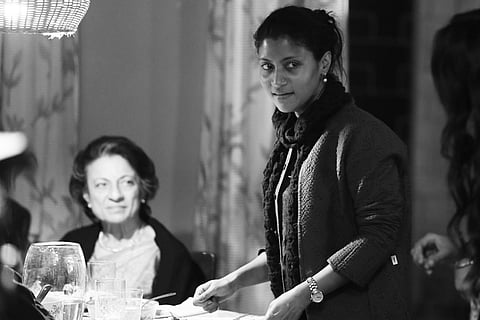
- In-Depth Stories
- Web Stories
- Reviews
- News
- FC Lists
- Interviews
- Features
- FC SpecialsFC Specials

IT TOOK 7 DRAFTS TO GET IT RIGHT
When the idea of making A Death In The Gunj came to me, I started developing it in my head first. I got quite far along even without writing things down. I was just making notes and getting my events and characters in place. I did hour-long narrations for a couple of writer friends and they suggested that I must write it myself. So then I gave it a shot. I hired Disha Rindani who's written the additional screenplay – she's a young, talented filmmaker herself. She came on board and downloaded that final draft because I had no clue how to type a script! That's how we got the first draft ready.
Then I went to the NFDC script lab. Marten Rabarts was my mentor on that. He really helped trim a lot of the fat. By the time I was done, I had a very specific and detailed script ready. It mentioned how the door closes, how the car's dicky will be opened – everything. We didn't deviate much from this while shooting. So this was a rigorous process that took about a year and a half.
SHOOTING IN A REMOTE BIHAR VILLAGE
The film is based in McCluskieganj which was founded in 1933 and it was a haven for the Anglo-Indian community. After Independence a lot of Anglo-Indians left and so it's quite a curious kind of milieu that we have over there. There are the local Biharis, some Bengalis who come on holiday and then the tribals who inhabit the area. There's nothing really to do there.
I believe a few Bengali films back in the day have shot some sequences in McCluskieganj because it was very picturesque. They used to call it 'mini London' back in the day. Now it's in a state of decay.
We couldn't house the entire crew there. So we were living in Ranchi and driving three-fours hours everyday. Also we heard there were some active naxalites in the area – who knows how true that is!
THE TOUGHEST DAY ON SET
There were so many! They always say don't shoot with children or animals and I had both. We had several animals – a frog, some birds, a puppy. And the puppy kept growing up really fast in the course of the 30 or 40 days that we were there. So we had 2-3 of them on-set. Then we had a couple of bandhs while shooting the climax. So it was complicated – not an easy shoot.
WHY BEING A MOM HELPS
I love scenes where I'm shooting with one or two actors but when all of them were together, it was a riot because there were seven key players. And they are such a handful on their own. Also, it's not just the cast – it's also the crew because everyone has their own feelings and I don't think you can get the best out of everybody by humiliating them.
I think being a mom has really helped because of the resilience I have developed. The patience I developed especially in the first one or two years of child birth really helped with this experience.
BEING AN ACTOR AIDS THE FILMMAKER IN YOU
Being an actor helped me a lot. I've been on sets since I was 3 years old or probably younger. So I am very familiar with that environment. I've also acted in some 40 films myself. Since a set can be a such stressful place, it helps if you're familiar with the environment.
MAKING AN INDIE FILM TEACHES YOU TO DO MORE WITH LESS
It's hard to make any kind of film. But in a small film you have to be really well-planned and organised because you have little resources. In a big film everything depends on getting a big star. If you don't have a big star, that means all your resources are limited, and that includes even time. You can't do pre-production for months.
Even when I'm writing I account for this – but only in very broad strokes. I do remember thinking while writing that 'thank god the entire film will be made in one house'.
Having grown up in this tradition of making these small films I can say it teaches you a lot. Especially when you're hiring things and spending the money – you know you have to finish scenes that require a certain kind of equipment quickly.
BEST FILMMAKING TIP FROM MOM
I love the fact that my mom is involved in everything. When she started working, there weren't such clearly defined departments like an art department, etc. So I've seen her and her friends scramble to get everything together. Which is why I said in a small budget film you learn to be creative and do things yourself. And I feel that unless you look at all the little things yourself, you have to be prepared to get something you're not happy with. There's always that risk. Even if it means sleeping less.